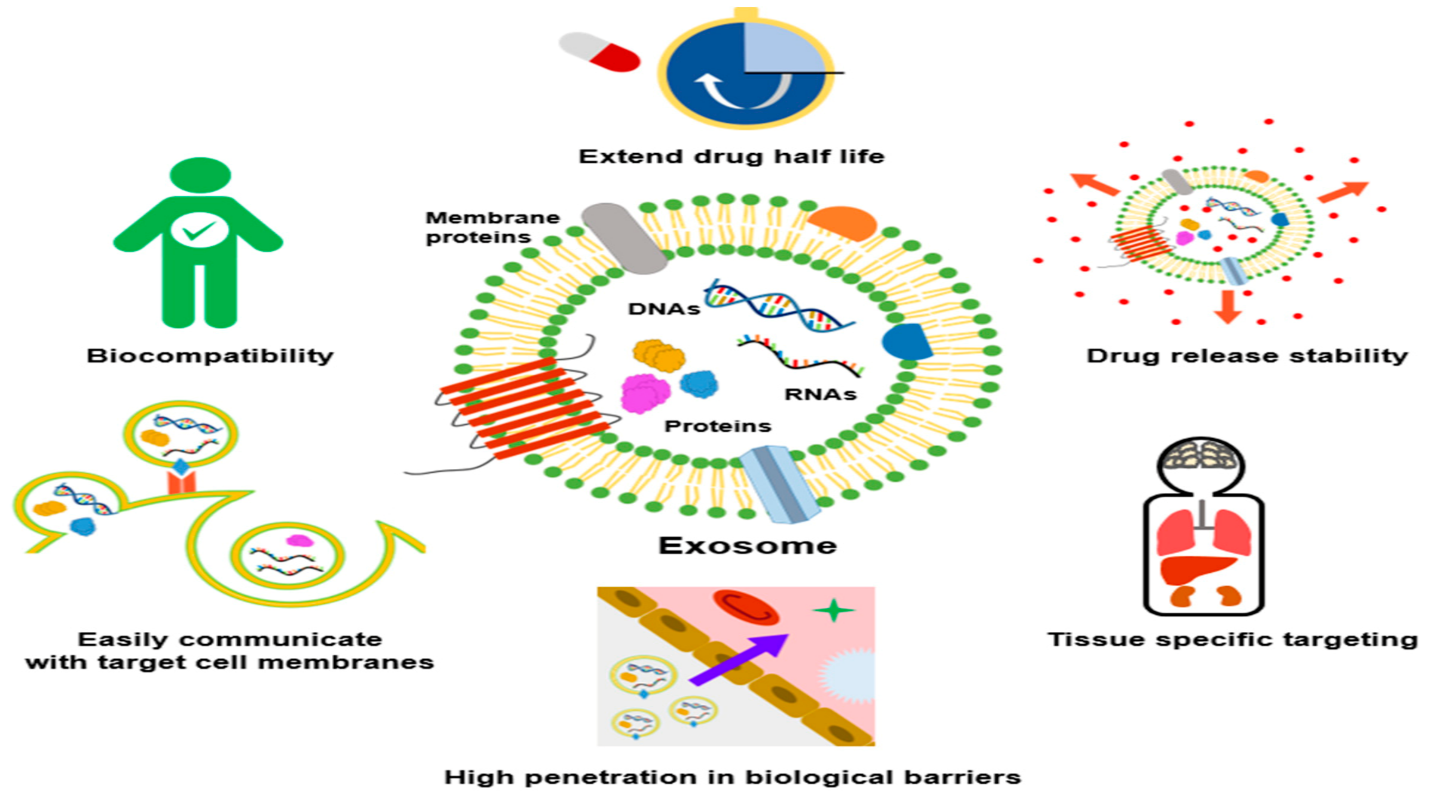General Health Tips & News
The Advantages of Using Exosomes In Treating Diseases
By M.M. (staff writer) , published on May 07, 2024

Medicine Telehealth Health exosomes
The Advantages of Using Exosomes in Treating Diseases
Exosomes are vesicles that cells generate extracellularly and contain lipids, metabolites, and proteins. They mediate intercellular intercellular communications in diseases and health, which then affects the biological composition of the cells in the body.
Exosomes have been known to treat diseases such as cancer by providing "vehicles" that are used to deliver cancer drugs to affected body cells. Doctors also use them to develop therapies responsible for treating different ailments depending on the severity of a patient's condition.
So, what are some of the advantages of using exosomes in disease treatment? They include the following;
They Are Compatible with Living Cells and Tissues.
When an exosome fuses with a cell membrane, its contents are fully released into the cytoplasm. While this route is the most efficient, there is clear evidence indicating that the mechanism that is responsible for compatibility is endocytosis. Endocytosis involves an exosome being engulfed by a plasma membrane that joins the endosomal system.
They Exhibit Low Toxicity
One reason why exosomes hold potential in therapeutics is because they have low toxicity levels. They can also cross the barrier caused by blood-brain for maximum potential in treating ailments.
Another factor to consider is that they have a reduced threat against the self-exosomes, and they also have a membrane that is stable and ensures their uptake in facilitating transportation from one cell to the other.
They Help in Extending Blood Circulation
Exosomes play a huge role in helping blood circulation throughout the body. When exosomes are secreted, they become so small that they can easily enter the blood circulation through the gaps located in the endothelial cells. Once they pass the endothelial cells, they are disseminated to various organs in the body and cells, boosting and extending blood circulation.
They are excellent therapeutic carriers
Exosomes, secreted by different cell types, carry molecules that act as signals. The molecules include proteins and nucleic acid.
The secreted exosomes play a vital role in the behavior of cells. Since they are best adapted in the intercellular correspondence in the body, they help deliver drugs to cells that need them.
In conclusion, exosomes play a huge role in ensuring that body functions work well, ranging from blood circulation to merging with living cells and tissues. The above advantages are vital in ensuring diseases are treated well, effectively, and promptly to ensure patient survival.
Sources
Find articles related to: Medicine Telehealth Health exosomes
More articles about General Health Tips & News
Back to the Health Tips Index




